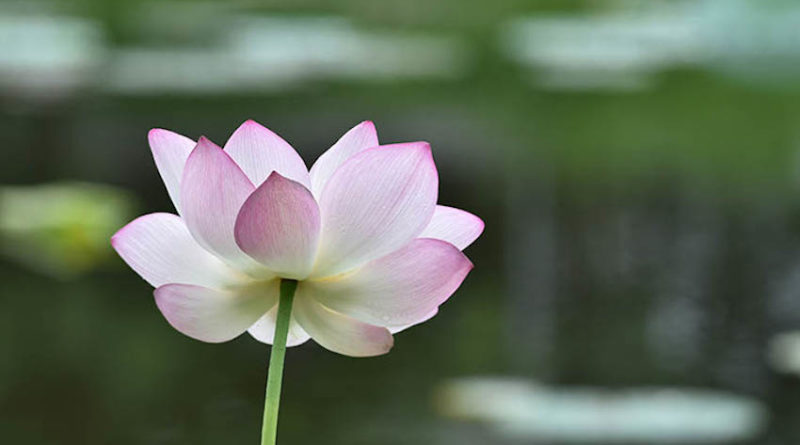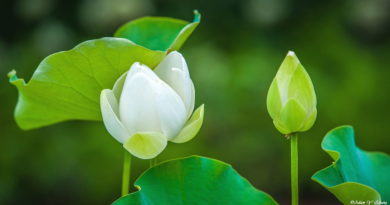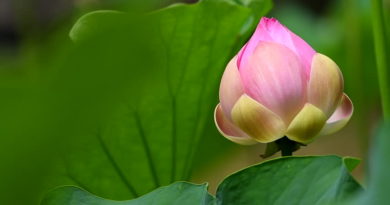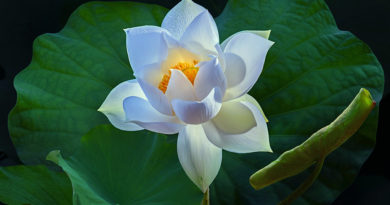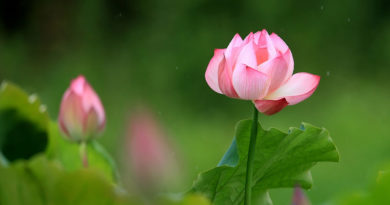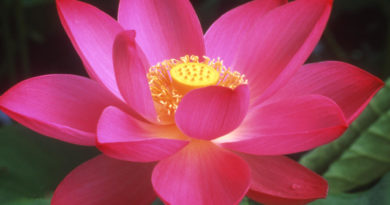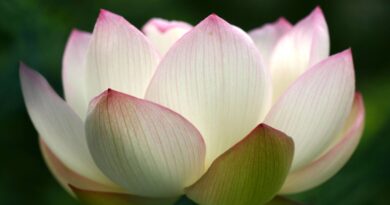Mahādhammasamādānasuttaṃ – The Longer Discourse On Observances
Majjhima Nikāya I
5. 6. Mahādhammasamādānasuttaṃ
(46) The Longer Discourse on Observances
I heard thus.
At one time the Blessed One lived in the monastery offered by Anāthapiṅḍika in Jeta’s grove in Sāvatthi. The Blessed One addressed the bhikkhus from there.
Bhikkhus, humans are always with interests, desires and intentions, like these. May unwelcome, disagreeable and unpleasant things decrease and may welcome, agreeable and pleasant things increase. Bhikkhus, to them, with such interests, desires and intentions, unwelcome, disagreeable and unpleasant things increase and welcome, agreeable and pleasant things decrease. Bhikkhus, do you understand the reason for it. Venerable sir, the Blessed One is the originator, leader and the refuge of the Teaching, may the Blessed One himself explain the meaning of these words. The bhikkhus will bear it in mind, hearing it from the Blessed One. Then bhikkhus, listen carefully I will preach.
Here bhikkhus, the not learned ordinary man, who has not seen noble ones, and Great Men, not heard their Teaching and not trained in their Teaching, does not know the things that should be practised and the things that should not be practised. He practises things that should not be practised and does not practise the things that should be practised. To him who practises things that should not be practised and does not practise things that should be practised unwelcome, disagreeable, unpleasant things increase and welcome, agreeable, pleasant things decrease. What is the reason? Bhikkhus, it happens thus to the unwise.
Bhikkhus, as for the noble disciple who has seen noble ones, and Great Men, has heard their Teaching and is trained in their Teaching. He knows the things that should be practised and the things that should not be practised. He practises things that should be practised and does not practise things that should not be practised. To him who practises things that should be practised and does not practise things that should not be practised unwelcome, disagreeable, unpleasant things decrease and welcome, agreeable, pleasant things increase. What is the reason:Bhikkhus, it happens thus to the wise.
Bhikkhus, these four are the observances in the Teaching. What four? There is an observance, which is now unpleasant and brings unpleasant results in the future. There is an observance which is pleasant now and brings unpleasant results in the future. There is an observance which is now unpleasant and brings pleasant results in the future and there is an observance which is pleasant now and brings pleasant results in the future.
Bhikkhus, this observance which is unpleasant now and brings unpleasant results in the future. The foolish do not know it, as it really is, that this observance is unpleasant now and brings unpleasant results in the future and they observe it. To them observing it, unwelcome, disagreeāble, unpleasant feelings increase and welcome, agreeable, pleasant feelings decrease. What is the reason?. Bhikkhus, it so happens to the foolish. Bhikkhus, this observance which is pleasant now and brings unpleasant results in the future, the foolish do not know it, as it really is, that this observance is pleasant now and brings unpleasant results in the future. So they observe it. To them observing it, unwelcome, disagreeable, unpleasant feelings increase and welcome, agreeable, pleasant feelings decrease. What is the reason? Bhikkhus, it so happens to the foolish. Bhikkhus. this observance which is unpleasant now and brings pleasant results in the future, the foolish do not know it, as it really is, this observance is unpleasant now and it brings pleasant results in the future, and they do not observe it. To them not observing it, unwelcome, disagreeable, unpleasant feelings increase and welcome, agreeable pleasant feelings decrease. What is the reason? Bhikkhus, it so happens to the foolish. Bhikkhus, this observance, which is pleasant now and brings pleasant results in the future, the foolish do not know it, as it really is. This observance is now pleasant and brings pleasant results in the future, and they do not observe it. To them not observing it, unwelcome, disagreeable, unpleasant feelings increase and welcome agreeable pleasant feelings decrease. What is the reason. Bhikkhus, it so happens to the foolish. :
Bhikkhus, this observance which is unpleasant now and brings unpleasant results in the future. The wise know it, as it really is. This observance is unpleasant now and brings unpleasant results in the future and they do not observe it. To them not observing it, unwelcome, disagreeāble, unpleasant feelings decrease and welcome, agreeable, pleasant feelings increase. What is the reason? Bhikkhus, it so happens to the wise. Bhikkhus, this observance which is pleasant now and brings unpleasant results in the future, the wise know it, as it really is. This observance is pleasant now and it brings unpleasant results in the future, and they do not observe it. To them not observing it, unwelcome, disagreeable, unpleasant feelings decrease and welcome, agreeable, pleasant feelings increase. What is the reason? Bhikkhus, it so happens to the wise. Bhikkhus. this observance which is unpleasant now and brings pleasant results in the future, the wise know it, as it really is. This observance is unpleasant now and it brings pleasant results in the future, and they observe it. To them observing it, unwelcome, disagreeable, unpleasant feelings decrease and welcome, agreeable pleasant feelings increase. What is the reason?: Bhikkhus, it so happens to the wise. Bhikkhus, this observance, which is pleasant now and brings pleasant results in the future, the wise know it, as it really is. This observance is now pleasant and brings pleasant results in the future, and they observe it. To them observing it, unwelcome, disagreeable, unpleasant feelings decrease and welcome agreeabale pleasant feelings increase. What is the reason? Bhikkhus, it so happens to the wise
Bhikkhus, what is the observance that is unpleasant now and brings unpleasant results in the future. Here, a certain one with displeasure destroys living things and on account of it experiences unpleasantness. With displeasure takes what is not given and on account of it experiences unpleasantness. With displeasure misbehaves sexually and on account of it experiences unpleasantness. With displeasure tells lies and on account of it experiences unpleasantness. With displeasure says malicious things and on account of it experiences unpleasantaness. With displeasure talks roughly and on account of it experiences unpleasantness. With displeasure talks frivolously and on account of it experiences unpleasantness. With displeasure becomes covetous and on account of it experiences unpleasantness. With displeasure bears an angry mind and on account of it experiences unpleasantness. With displeasure maintains wrong view and on account of it experiences unpleasantness. He after death goes to decrease and is born in hell. This is the observance that is unpleasant now and brings unpleasant results in the future.
Bhikkhus, what is the observance that is pleasant now and brings unpleasant results in the future. Here, a certain one with pleasure destroys living things and experiences pleasantness. With pleasure takes what is not given and experiences pleasantness. With pleasure misbehaves sexually and experiences pleasantness. With pleasure tells lies and experiences pleasantness. With pleasure says malicious things and experiences pleasantaness. With pleasure talks roughly and experiences pleasantness. With pleasure talks frivolously and experiences pleasantness. With pleasure becomes covetous and experiences pleasantness. With pleasure bears an angry mind and experiences pleasantness. With pleasure maintains wrong view and experiences pleasantness. He after death goes to decrease and is born in hell. Bhikkhus, this is the observance that is pleasant now and brings unpleasant results in the future.
Bhikkhus, what is the observance that is unpleasant now and brings pleasant results in the future. Here, a certain one with displeasure abstains from destroying living things and on account of it experiences unpleasantness. With displeasure abstains from taking what is not given and experiences unpleasantness. With displeasure abstains from misbehaviour in sexuality and experiences unpleasantness. With displeasure abstains from telling lies and experiences unpleasantness. With displeasure abstains from telling malicious things and on account of it experiences unpleasantaness. With displeasure abstains from talking roughly and on account of it experiences unpleasantness. With displeasure abstains from talking frivolously and experiences unpleasantness. With displeasure abstains from coveting and experiences unpleasantness. With displeasure abstains from bearing an angry mind and experiences unpleasantness. With displeasure maintains right view and on account of it experiences unpleasantness. He after death goes to increase and is born in heaven. This is the observance that is unpleasant now and brings pleasant results in the future.
Bhikkhus, what is the observance that is pleasant now and brings pleasant results in the future. Here, a certain one with pleasure abstains from destroying living things and experiences pleasantness. With pleasure abstains from taking what is not given and experiences pleasantness. With pleasure abstains from misbehaviour in sexuality and experiences pleasantness. With pleasure abstains from telling lies and experiences pleasantness. With pleasure abstains from telling malicious things and experiences pleasantaness. With pleasure abstains from talking roughly and experiences pleasantness. With pleasure abstains from talking frivolously and experiences pleasantness. With displeasure abstains from coveting and experiences pleasure and pleasantness. With pleasure abstains from bearing an angry mind and on account of it experiences pleasantness. With pleasure maintains right view and on account of it experiences pleasure and pleasantness. He after death goes to increase and is born in heaven. This is the observance that is pleasant now and brings pleasant results in the future. Bhikkhus, these are thefour observances in the Teaching.
Bhikkhus, a man who wants to live and not die, who likes pleasantnes, loathes unpleasantness, would come along and is told :Friend, this is a drink prepared out of the bitter goad, and it is mixed with poison. It is not agreeable to sight, smell, or taste, and drinking it you will come to death or deathly unpleasantness. If you desire drink. Not reflecting about it, he would drink. To sight, smell or taste it would not be agreeable and drinking it, he would come to death or deathly unpleasanatness. Bhikkhus, I say, this observance of the Teaching is comparable to this, as it is unpleasant now and brings unpleasant results in the future.
Bhikkhus, a man who wants to live and not die, who likes pleasantness and loathes unpleasantness, would come along and is told :Friend, there is a drink in this bowl, it is mixed with poison. It is agreeable to sight, smell, and taste, and drinking it you will come to death or deathly unpleasantness. If you desire drink. Not reflecting about it he would drink it. To sight, smell and taste it would be agreeable and drinking it, he would come to death or deathly unpleasanatness. Bhikkhus, I say, this observance of the Teaching is comparable to this, as it is pleasant now and brings unpleasant results in the future.
Bhikkhus, a man would come along suffering from jaundice and he is told: Friend, there is a drink made out of putrid urine, with various kinds of medicines put in it. If you desire drink. When drinking it would not be agreeable to sight, smell or taste but drinking it you will get over your illness. He reflects about it and drinks it. It would not be agreeable to sight, smell or taste, yet he would get over that illness. I say this observance of the Teaching is comparable to this, as it is now unpleasant and brings pleasant results in the future.
Bhikkhus, a man suffering from bloody dysentry comes along and he is told, good man, there is a mixture made of curd, honey, ghee and sugar molasses. It is agreeable to sight, smell and taste, and if you drink it, you will get over your disease. He reflects and drinks it finds it agreeable to sight, smell and taste even while drinking, and drinking he gets over his disease. Bhikkhus, I say, this observance of the Teaching is comparable to this, as it is now pleasant and brings pleasant results in the future Bhikkhus, in the last month of the rains, in Autumn when the sky is clear of rainy clouds, the sun shines resplendent expelling all the darkness giving radiance and heat, in the same manner, this observance of the Teaching, which is pleasant now and brings pleasant results in the future, expels all the teachings of other recluses and brahmins.
The Blessed One said thus and those bhkkhhus delighted in the words of the Blessed One. . .

